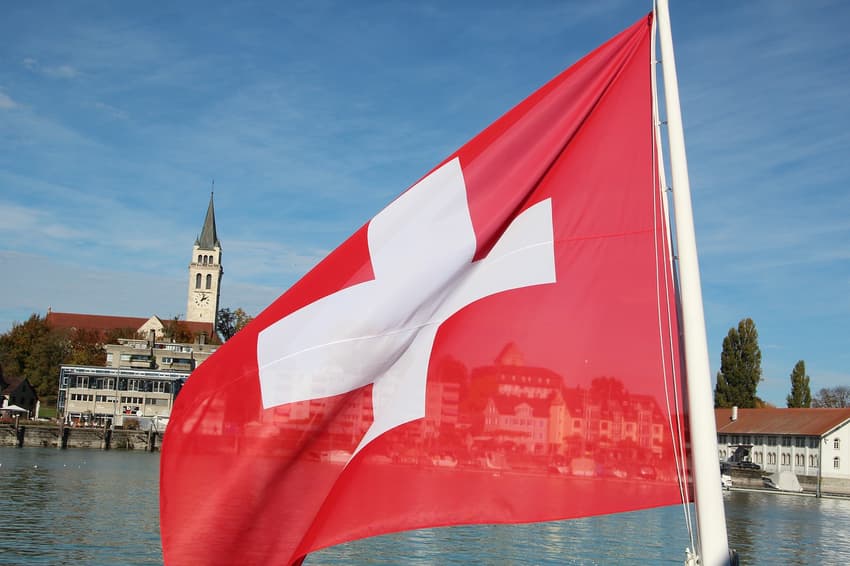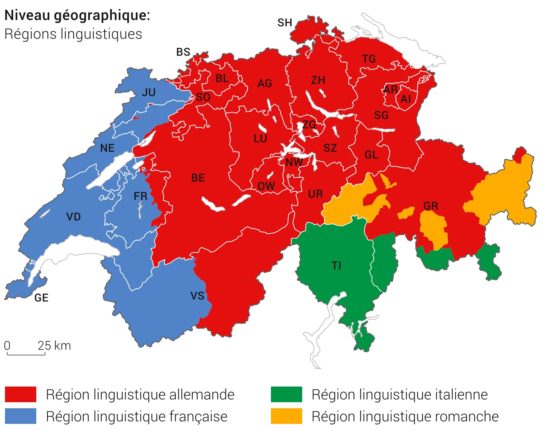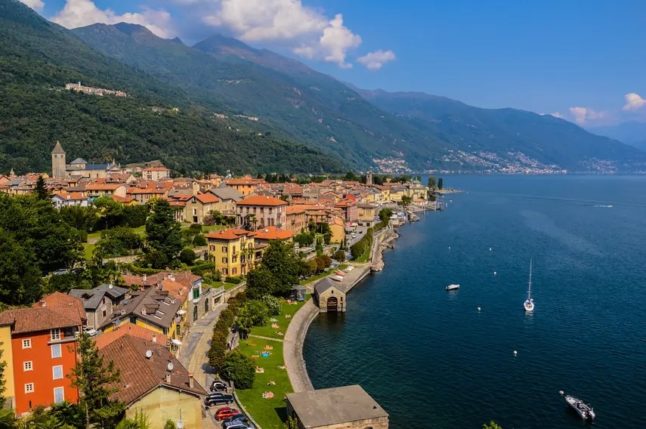How do Switzerland's linguistic groups differ in their outlooks?

For many people living abroad, ‘Switzerland’ is a country of homogenous bankers, watchmakers, and yodelers. But if you live here, you know this is not the case. Helena Bachmann looks at the differences (and stereotypes) among linguistic groups.
Switzerland is a nation of many contrasts and paradoxes, not least of which is that ‘Swissness’ is very hard to define because the county is so varied, both linguistically and culturally.
There are even differences in mentality among the same language regions — for instance, Zurich residents consider people in Basel to be ‘provincial’, while Basel residents think their Zurich counterparts are ‘arrogant.’
The same divergences emerge in French-speaking Switzerland as well: people in Vaud consider Geneva, and its population, to be more French than Swiss (and that is no compliment, as the Swiss, including Genevans themselves, look down on anything French).
Generally speaking, however, differences in mentality and outlooks are clearly defined along the Rösti- and Polentagraben.
‘Röstigraben’ symbolises a rift between the two largest linguistic groups in Switzerland — German and French, while ‘Polentagraben, refers to the cultural border between the Italian-speaking part of Switzerland, Ticino, and the rest of the country)
Diversity reigns
The fact that a country of only 8.8 million people can be so diverse is probably mind-blowing to anyone who imagines Switzerland as uniform.
Those people are shocked (once they visit or move here) to discover that there is no one ‘Swiss’ language, and that not everyone here looks like the quintessential ‘Swiss’ girl, Heidi.
READ ALSO: Just how diverse is the Swiss population?
The languages spoken in each canton depend largely on the geographical boundaries of Switzerland and the influence of the countries nearest to them.
As different regions of Switzerland and neighbouring countries became annexed and blended together throughout the centuries, linguistic identities were forged as well.

This map shows the linguistic lines. Image: Federal Statistical Office.
READ ALSO: How did Switzerland become a country with four languages?
In the process (it is said), some of those specific characteristics also spilled over to the mindsets of the people.
For instance, in Switzerland’s unofficial cultural hierarchy, each linguistic region is believed to have adopted the mentality and attitudes of the countries they border.
Thus, Swiss-Germans are considered to be most efficient and organised and Ticino residents the least, with French-speaking regions falling in the middle.
Swiss-Germans
If the above-mentioned belief is correct, then it follows that people living in the central and eastern regions have absorbed ‘Germanic traits' (or stereotypes) such as efficiency, punctuality, orderliness, work ethic, and having no sense of humour.
Actually, while the first four could be argued to be mostly true, the last one isn’t: despite their seriousness — another trait believed to be inherited from their northern neighbours — the Swiss can be quite funny.
READ ALSO: The jokes that prove the Swiss have a sense of humour
Generally speaking, the Swiss Germans are also the most conservative.
In fact, the populist Swiss People’s Party (SVP) was originally formed in the rural regions of German-speaking Switzerland, where it had many supporters, before spilling over to other parts of the country as well.
To this day, most of the party’s supporters live in the German part, though it is not clear whether this is because it is the most populated region of Switzerland, or whether more people there than elsewhere in the country back right-wing ideas.
However, this is where the line should be drawn between rural areas and cities. For instance, Zurich has a Social Democrat mayor, while the head of the Basel-City Council is from a Green Party. In the less urban areas, however, — like the two Appenzells, Glarus, Uri, Schwyz, Nidwalden, and Obwalden — conservatism reigns.
Swiss-French
This region is called La Suisse Romande, or La Romandie — never Swiss-French.
That would undoubtedly remind the locals about their ancestral ties with France – something they’d rather forget. They prefer to think that their only connection to their neighbour is the language, and even there, it is not 100 percent the same.
(If you are really French, don't volunteer this information. Tell the Romands you are Belgian. Or better yet, French-Canadian).
The Romands pride themselves not only on having better fashion sense than their Swiss-German counterparts (for instance, Swiss-French men don’t wear socks with sandals), but also on being less pernickety, and not as conceited as Swiss-Germans.
While the Romands tolerate their Swiss-German neighbours (certainly more than they tolerate the French), they will not want to speak their language.
One reason is that they don’t like the sound of it and another that, while they all learned it in school (though under duress), they didn’t learn it well.
You will have to look far and wide to find a Romand who speaks Swiss-German fluently, without an accent and enjoys it.
They speak it because their job demands it. For other Romands, it is an unnecessary burden.
Swiss-Italian
Though small parts of Valais and Graubünden have enclaves of Italian-speaking population, the vast majority live in Ticino, along the border with Italy.
Because of this proximity, Ticino has a distinctly Mediterranean feel — including palm trees — and a laid-back vibe that is rare in many other Swiss cantons (especially the German-speaking ones).

Ticino has a distinct 'Italian' feel. Image by Jonathan Reichel from Pixabay
Also, because of this proximity, and being a bit removed, geographically speaking, from the influence of ‘mainland’ cantons, Ticino’s population has absorbed quite a bit of Italy’s easy-going attitudes to life (though Italians still regard them as ‘too Swiss.’)
As some here often point out, “Ticino is just like Italy, only cleaner.”
Are there any traits that all linguistic regions share?
Yes, while they each identify with their canton and linguistic region, they also know they are all Swiss.
This means they love their country and are fiercely loyal to it.
Not only that, but they genuinely believe they have the best country in the world and take pride in their efficiency, economic stability, beautiful landscapes, Roger Federer, and generally the way everything here works.
Sometimes, this patriotism and national pride also have an ‘uglier’ side: many of the Swiss believe they are superior to all other nations.
This is what unifies them, though within Switzerland itself, the hierarchy, as mentioned above, takes precedence: Swiss-Italians are topped by the Swiss-French, and they are all upped by the Swiss-Germans - at least when it comes to the efficiency stereotype.
READ ALSO: Where does the myth of German efficiency come from?
Comments
See Also
Switzerland is a nation of many contrasts and paradoxes, not least of which is that ‘Swissness’ is very hard to define because the county is so varied, both linguistically and culturally.
There are even differences in mentality among the same language regions — for instance, Zurich residents consider people in Basel to be ‘provincial’, while Basel residents think their Zurich counterparts are ‘arrogant.’
The same divergences emerge in French-speaking Switzerland as well: people in Vaud consider Geneva, and its population, to be more French than Swiss (and that is no compliment, as the Swiss, including Genevans themselves, look down on anything French).
Generally speaking, however, differences in mentality and outlooks are clearly defined along the Rösti- and Polentagraben.
‘Röstigraben’ symbolises a rift between the two largest linguistic groups in Switzerland — German and French, while ‘Polentagraben, refers to the cultural border between the Italian-speaking part of Switzerland, Ticino, and the rest of the country)
Diversity reigns
The fact that a country of only 8.8 million people can be so diverse is probably mind-blowing to anyone who imagines Switzerland as uniform.
Those people are shocked (once they visit or move here) to discover that there is no one ‘Swiss’ language, and that not everyone here looks like the quintessential ‘Swiss’ girl, Heidi.
READ ALSO: Just how diverse is the Swiss population?
The languages spoken in each canton depend largely on the geographical boundaries of Switzerland and the influence of the countries nearest to them.
As different regions of Switzerland and neighbouring countries became annexed and blended together throughout the centuries, linguistic identities were forged as well.

READ ALSO: How did Switzerland become a country with four languages?
In the process (it is said), some of those specific characteristics also spilled over to the mindsets of the people.
For instance, in Switzerland’s unofficial cultural hierarchy, each linguistic region is believed to have adopted the mentality and attitudes of the countries they border.
Thus, Swiss-Germans are considered to be most efficient and organised and Ticino residents the least, with French-speaking regions falling in the middle.
Swiss-Germans
If the above-mentioned belief is correct, then it follows that people living in the central and eastern regions have absorbed ‘Germanic traits' (or stereotypes) such as efficiency, punctuality, orderliness, work ethic, and having no sense of humour.
Actually, while the first four could be argued to be mostly true, the last one isn’t: despite their seriousness — another trait believed to be inherited from their northern neighbours — the Swiss can be quite funny.
READ ALSO: The jokes that prove the Swiss have a sense of humour
Generally speaking, the Swiss Germans are also the most conservative.
In fact, the populist Swiss People’s Party (SVP) was originally formed in the rural regions of German-speaking Switzerland, where it had many supporters, before spilling over to other parts of the country as well.
To this day, most of the party’s supporters live in the German part, though it is not clear whether this is because it is the most populated region of Switzerland, or whether more people there than elsewhere in the country back right-wing ideas.
However, this is where the line should be drawn between rural areas and cities. For instance, Zurich has a Social Democrat mayor, while the head of the Basel-City Council is from a Green Party. In the less urban areas, however, — like the two Appenzells, Glarus, Uri, Schwyz, Nidwalden, and Obwalden — conservatism reigns.
Swiss-French
This region is called La Suisse Romande, or La Romandie — never Swiss-French.
That would undoubtedly remind the locals about their ancestral ties with France – something they’d rather forget. They prefer to think that their only connection to their neighbour is the language, and even there, it is not 100 percent the same.
(If you are really French, don't volunteer this information. Tell the Romands you are Belgian. Or better yet, French-Canadian).
The Romands pride themselves not only on having better fashion sense than their Swiss-German counterparts (for instance, Swiss-French men don’t wear socks with sandals), but also on being less pernickety, and not as conceited as Swiss-Germans.
While the Romands tolerate their Swiss-German neighbours (certainly more than they tolerate the French), they will not want to speak their language.
One reason is that they don’t like the sound of it and another that, while they all learned it in school (though under duress), they didn’t learn it well.
You will have to look far and wide to find a Romand who speaks Swiss-German fluently, without an accent and enjoys it.
They speak it because their job demands it. For other Romands, it is an unnecessary burden.
Swiss-Italian
Though small parts of Valais and Graubünden have enclaves of Italian-speaking population, the vast majority live in Ticino, along the border with Italy.
Because of this proximity, Ticino has a distinctly Mediterranean feel — including palm trees — and a laid-back vibe that is rare in many other Swiss cantons (especially the German-speaking ones).

Also, because of this proximity, and being a bit removed, geographically speaking, from the influence of ‘mainland’ cantons, Ticino’s population has absorbed quite a bit of Italy’s easy-going attitudes to life (though Italians still regard them as ‘too Swiss.’)
As some here often point out, “Ticino is just like Italy, only cleaner.”
Are there any traits that all linguistic regions share?
Yes, while they each identify with their canton and linguistic region, they also know they are all Swiss.
This means they love their country and are fiercely loyal to it.
Not only that, but they genuinely believe they have the best country in the world and take pride in their efficiency, economic stability, beautiful landscapes, Roger Federer, and generally the way everything here works.
Sometimes, this patriotism and national pride also have an ‘uglier’ side: many of the Swiss believe they are superior to all other nations.
This is what unifies them, though within Switzerland itself, the hierarchy, as mentioned above, takes precedence: Swiss-Italians are topped by the Swiss-French, and they are all upped by the Swiss-Germans - at least when it comes to the efficiency stereotype.
READ ALSO: Where does the myth of German efficiency come from?
Join the conversation in our comments section below. Share your own views and experience and if you have a question or suggestion for our journalists then email us at [email protected].
Please keep comments civil, constructive and on topic – and make sure to read our terms of use before getting involved.
Please log in here to leave a comment.